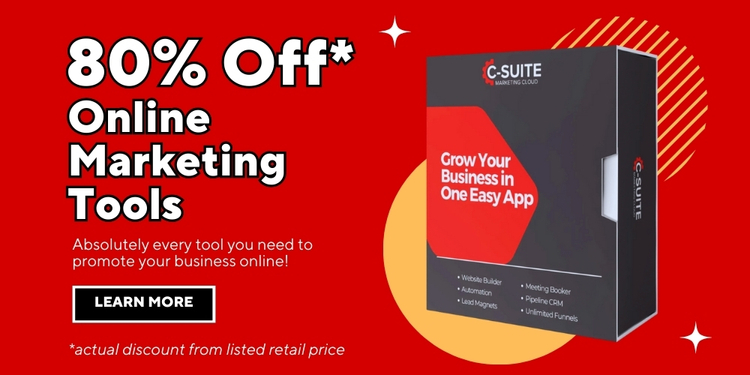Sales pipeline management tools involve tracking and managing every sales opportunity from inception to conclusion. These tools can be thought of as a roadmap to guide sales teams on how to approach potential deals. The primary goal of these tools is to convert prospects into loyal customers, but it’s also about understanding where each prospect is in the buying process and what actions are needed to move them forward.
The process is dynamic and requires continuous monitoring and adjustment. It’s not just about having a long list of leads; it’s about knowing which leads are worth pursuing and how to allocate resources to maximize conversions effectively; which is exactly the kind of insight a great team leader provides for his or her sales force.
Why Manage a Sales Pipeline?
The primary benefit of managing a sales pipeline is increased sales efficiency and effectiveness. By having an accurate sales pipeline report of each stage of the sales process, teams can identify bottlenecks, understand customer behavior, and forecast sales with greater accuracy.
Proper pipeline management also leads to better customer relationships. By understanding the needs and behaviors of potential customers, businesses can tailor their approach, making interactions more personalized and effective.
Key Components of an Effective Sales Pipeline
- Segmentation: Dividing the pipeline into distinct stages (like lead generation, qualification, proposal, negotiation, and closure) helps in understanding the progression of each deal.
- Tracking and Monitoring: Utilizing CRM tools to track interactions, progress, and changes in the status of each lead is essential. This enables sales teams to prioritize efforts and follow up effectively.
- Analysis and Reporting: Regular pipeline data analysis helps identify trends and make informed decisions. Key performance indicators (KPIs) like conversion rates, average deal size, and sales cycle length are crucial metrics.
- Continuous Improvement: The sales landscape is constantly evolving. Regular reviews and adaptations of the sales strategy based on pipeline insights are necessary for staying competitive.
Challenges and Solutions in Sales Pipeline Management
Managing a sales pipeline is not without challenges. Common issues include data inaccuracy, neglecting leads, and failing to align the sales process with customer needs.
To overcome these challenges, businesses should invest in quality CRM software, train their teams in effective sales techniques, and constantly refine their sales processes based on customer feedback and market changes.
In today’s fast-paced sales environment, selecting the right sales pipeline tools is not just beneficial; it’s a necessity for business success. The appropriate tools can streamline the sales process, enhance team productivity, and provide invaluable insights into customer interactions. This 500-word article explores the key considerations and features to look for when choosing the right sales pipeline tools for your business.
Understanding Your Business Needs
Before diving into the vast sea of available tools, it’s crucial to understand your business’s specific needs. Consider the size of your sales team, the complexity of your sales process, and the nature of your customer interactions. A small business with a straightforward sales process might need a different set of tools compared to a large enterprise with a complex sales cycle.
Key Features of Effective Sales Pipeline Tools
- Lead and Contact Management: The tool should enable easy tracking and management of leads and contacts. This includes storing contact information, communication history, and tracking the progress of each lead through the sales funnel.
- Deal Tracking and Management: Effective tools allow for monitoring the status of deals at various stages. This feature helps in prioritizing efforts and focusing on the most promising opportunities.
- Task Automation: Automation of repetitive tasks like data entry, follow-up emails, and scheduling meetings can save valuable time and reduce the risk of human error.
- Performance Analytics and Reporting: The ability to analyze sales data and generate insightful reports is essential. This feature helps in understanding sales trends, team performance, and areas needing improvement.
- Customization and Integration: The best tools can be customized to fit your unique sales process and can seamlessly integrate with other software systems, like email, calendar, or marketing automation tools.
Evaluating Scalability and User-Friendliness
Scalability is an essential factor to consider. The chosen tool should be able to grow with your business, accommodating an increasing number of users and a more complex sales structure. Additionally, the tool should be user-friendly. If it’s too complicated, it might lead to resistance from the sales team, thereby reducing its effectiveness.
Security and Reliability
In an age where data breaches are common, the security of your sales data is paramount. Ensure that the tool you choose has robust security features to protect sensitive customer information. Reliability is another critical aspect. The tool should have minimal downtime and offer reliable customer support for troubleshooting.
Trial Periods and Reviews
Most tools offer trial periods or demos. Take advantage of these to test the tool’s functionality and compatibility with your sales process. Additionally, reading reviews and case studies can provide insights into the tool’s performance and user satisfaction.
Selecting the right sales pipeline management tools is a crucial decision that can significantly impact the efficiency and effectiveness of your sales process. By carefully considering your business needs, evaluating key features, and ensuring scalability and security, you can choose a tool that not only meets your current requirements but also supports future growth. Remember, the goal is to find a tool that works for you, making your sales process smoother and more productive.






